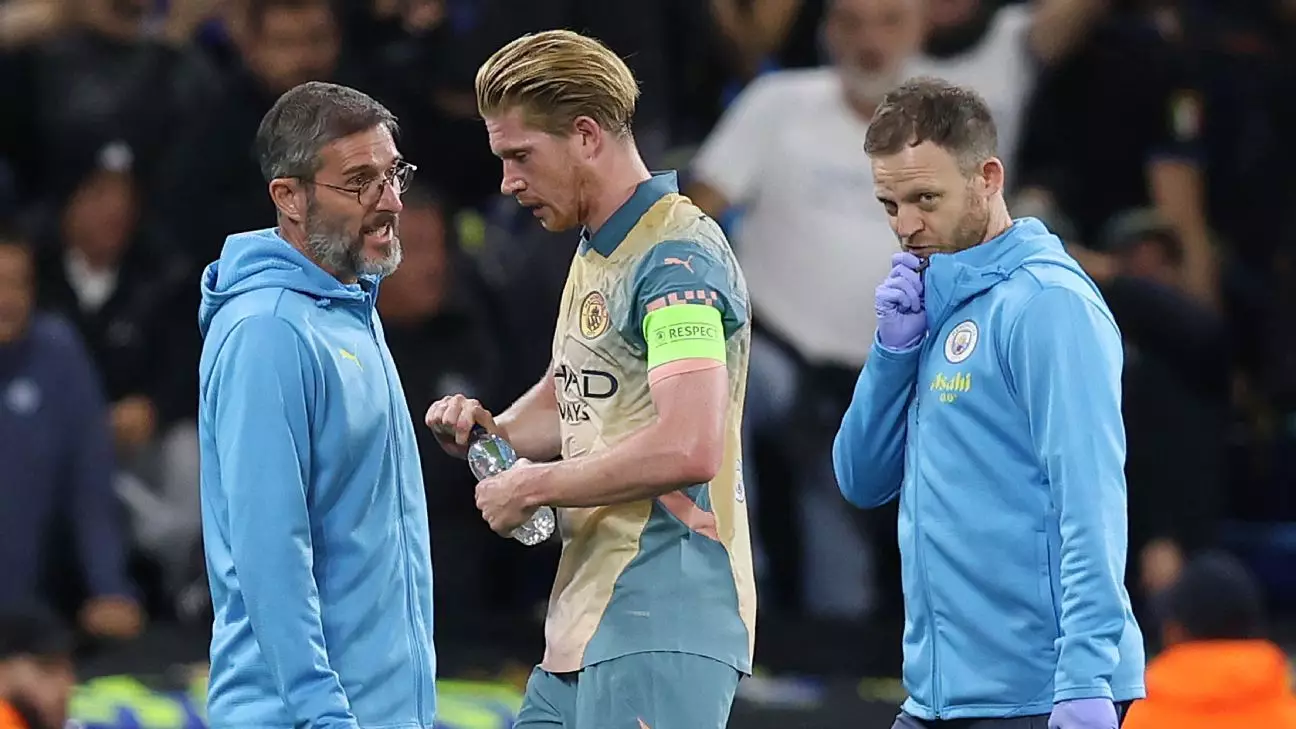As Manchester City gears up for a crucial match against Arsenal, the fitness of star midfielder Kevin De Bruyne hangs in the balance. City manager Pep Guardiola recently indicated that De Bruyne might still make an appearance despite an injury sustained during a match against Inter Milan. Guardiola’s comments reflect a mix of hope and caution, illuminating the physical toll that football can take on its players. With De Bruyne substituted at halftime following an injury in the first half, fans and analysts alike are left to wonder if his absence could impact City’s momentum in the Premier League. City has enjoyed a perfect start to the season, winning all four matches, but their title aspirations could face a significant test without one of their key players.
In discussing the broader landscape of football and player welfare, Guardiola’s insights into the congested football calendar resonate deeply within the football community. Players are increasingly vocal about the demands placed upon them, a sentiment echoed by Manchester City midfielder Rodri, who discussed the potential for a strike in the future. Guardiola, for the first time, conceded the validity of these concerns, underscoring the necessity for players to take charge of their predicament. His statement, “the only ones to have the power to do it is them,” emphasizes a shift in narrative. Traditionally, management, clubs, and even media often controlled the discourse around player welfare, but Guardiola acknowledges that the onus is now on the athletes themselves to advocate for change.
Players as Catalysts for Change
Guardiola’s perspective invites further examination of the evolving dynamics of football. The players, once merely seen as part of a larger machinery, are increasingly viewed as the real decision-makers when it comes to discussions about the sport’s future. With their unique insights and firsthand experiences, players hold a wealth of valuable information regarding the games’ grueling schedule. However, this empowerment comes with challenges. As the spotlight shifts to the athletes, they must balance their responsibilities to the club with the demanding expectations of their wellbeing.
Moreover, Guardiola suggests that changes aimed at enhancing the sport’s appeal must involve the players themselves. As they navigate the current landscape, which combines fame, performance pressure, and demands for entertainment, it is clear that players have a pivotal role in shaping the direction of modern football. The discussion around player welfare is not merely a request for leniency; it aims to create a more sustainable and enjoyable environment for both athletes and fans.
As the Premier League season progresses and Manchester City prepares for critical matches, the dialogue surrounding player welfare, injury management, and the overall football schedule is more potent than ever. With managers and players alike recognizing the need for change, this period marks a potentially transformative moment in the world of football. It will be essential to observe how this narrative develops, especially as players gain more leverage over their conditions and as the football community reflects on what it means to ensure the health and happiness of its athletes.

